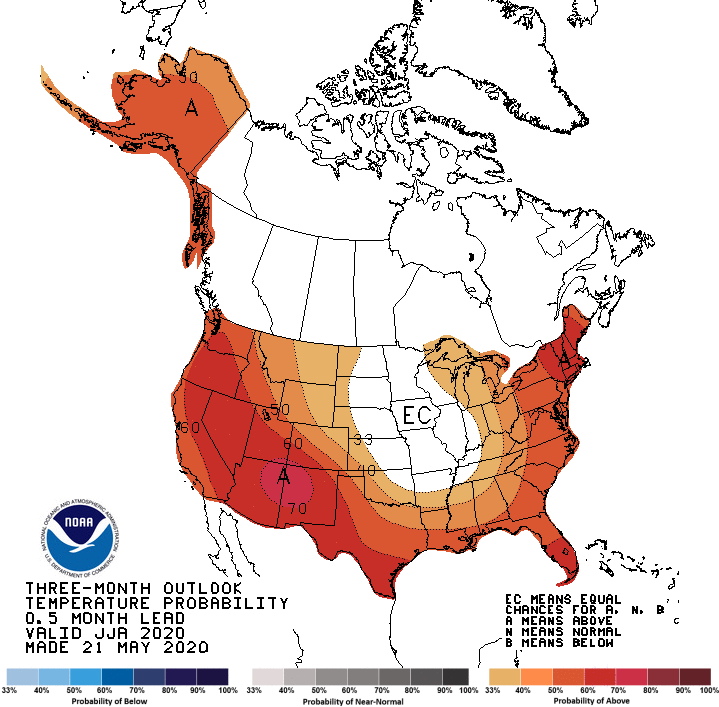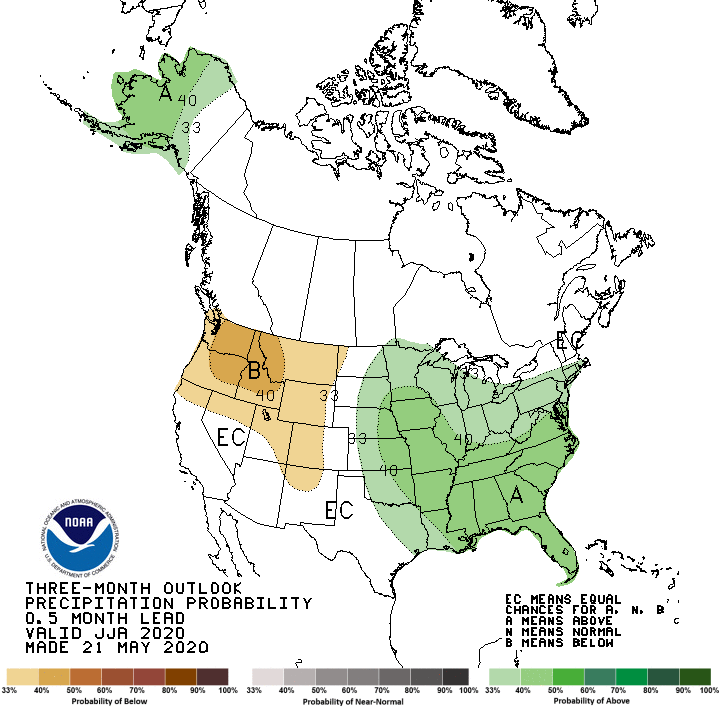
Last week the NOAA released its 3-month outlook for the months of June, July, and August (JJA). It looks like the majority of the country will bask in well above-normal temperatures for most of the summer, temperatures which have begun already in areas of California, Nevada, and Arizona.
- Related: NOAA: It’s Time to Say Goodbye | The Sierra Nevada Snowpack Will Be Gone by the End of the Week

With regards to precipitation, much of the eastern and central lower 48, and Alaska, will likely be wetter than normal. The PNW and much of the Rockies will be drier than normal.
The full discussion is below:
The June-July-August (JJA) 2020 temperature outlook favors above-normal temperatures across the West, Gulf Coast States, and along the East Coast. The largest probabilities (above 70 percent) of above normal temperatures are centered over the Four Corners region. Equal chances of below-, near-, or above-normal temperatures are forecast from the upper to middle Mississippi Valley along with parts of the northern to central Great Plains. The JJA precipitation outlook features increased chances of above normal precipitation for much of the eastern and central U.S., while below-normal precipitation is more likely across the Pacific Northwest, northern Great Basin, and much of the Rockies. Above-normal temperatures are favored throughout Alaska during JJA with increased chances of above-normal precipitation forecast for the Aleutians and most of mainland Alaska. During the late summer and early fall season, increased chances of above normal temperatures expand to include the entirety of the continental U.S. (CONUS) with the largest probabilities remaining over the Southwest. Meanwhile, chances of above-normal precipitation remain elevated across the Midwest, Southeast, and mid-Atlantic through August-September-October. By December-January-February 2020-2021, equal chances were introduced to the northern to central Great Plains and Midwest. Increased chances of above normal precipitation shift from the Southeast to the northern areas of the CONUS during October-November-December, while chances of below normal precipitation expand across the southern tier of the CONUS. Equal chances (EC) are forecast in areas where the likelihood of seasonal mean temperatures or seasonal accumulated precipitation amounts are expected to be similar to climatological probabilities.